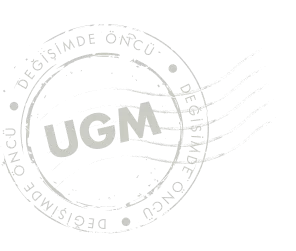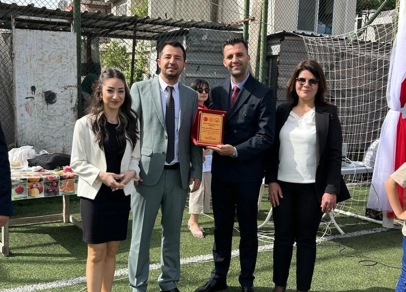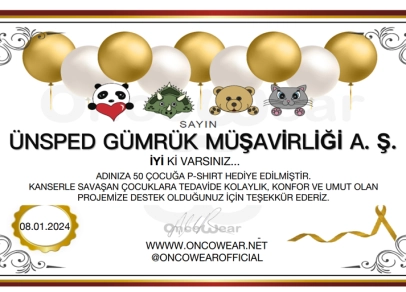


Our company started its activities in 1981 with the title of "ÜNSPED International Transport - M.Haluk Ün Değer". Since its establishment, our company has always given priority to technological infrastructure and innovations in a way that will respond to the needs of customers above their expectations and has been a pioneer in its sector in this regard.
More
Our employees are our greatest strength.
We consider the training and personal development of our employees as a part of our company culture, and within this framework, we try to provide a participatory corporate culture environment where they can demonstrate their potential in the best way.
More
Monitoring the effective implementation of the rules of business conduct by the "Ethics Committee"
We establish the necessary mechanisms for both our employees and our customers to contact the Ethics Committee in the event of a situation that violates or does not comply with the rules of business conduct.
More
Our Mission is to maintain its leadership in the sector based on the Legislation and ethical rules.
Our vision is to be a worldwide organized Customs Brokerage company.
More




You can fill out our job or internship application form to start your working life at Ünsped. For more information, you can visit our UGM Career Portal.
I have a question.
Subjecting to goods to a transaction or usage approved by customs requires having technical knowledge as well as different vast legislation knowledge such as customs and foreign trade and finance. For example, in order to pay the taxes of goods to be imported, firstly the HS Code (harmonized system code) of the goods should be known. In order to make this determination you need to have technical information about the goods. The customs duty of the goods is determined by the Import Regime Decision and the location of the goods the HS Code of which is determined in the list attached to the Decision in question should be found.
According to the quality of the goods, the import taxes, aside from the customs duty, may include different payments such as mass housing fund, value added tax, special consumption tax, anti-damping tax, additional financial liability, resource utilization support fund. Just in the calculation of the taxes to be paid in the import of goods, the information summarized above should be had. As such, members of a profession which follows up business with the capacity of indirect representation in customs offices are expected to have an occupational knowledge and occupational ethics.
The same mission undertaken by the Independent Financial Advisers and Financial Advisers and Certified Financial Advisers for the success of the tax implementations in the objective for realizing the financial discipline, is undertaken by the customs brokers for the issues of execution of foreign trade transactions according to the legislation and correct collection of taxes resulting from foreign trade. The general approaches and background information of customs brokers, who function as a bridge between firms and customs by on one hand providing consultancy services to firms that are engaged in foreign trade and by on the other hand ensuring that transactions are performed according to legislations in the customs, directly effects the success of the customs and foreign trade policies.
Areas in which the customs transactions are performed are customs bonded areas. Only authorized people can enter those areas.
On the other hand, there should be people who are authorized for the performance of the customs transactions (for example; certification of customs declaration, product sampling, examination of the goods, etc.). As you see, the performance of those transactions is named as business follow up in customs.
There are no legal limitations about business follow up in customs. People can follow up their transactions themselves and also the can perform it via a representative. The representation process can be direct representation or indirect representation.
Representative acting on behalf of and for someone else is called direct representation. In direct representation, the provisions and results of the legal transaction carried out by the authorized representative directly belongs to the principal from the moment that the transaction is carried out. Therefore, direct representation, within the organization of the legal person, has the capacity of being authorized to represent the legal person and being its employee. In direct representation, principal is responsible for tax and administrative penalty.
It is the representative acting on its own behalf however on someone else’s account. Therefore, the representative is not in the organization of the principal but the person whose authorized with power of attorney.
No. Anyone can be a direct representative however, only customs brokers can be indirect representative. However, it is possible for customs brokers to be direct representative.